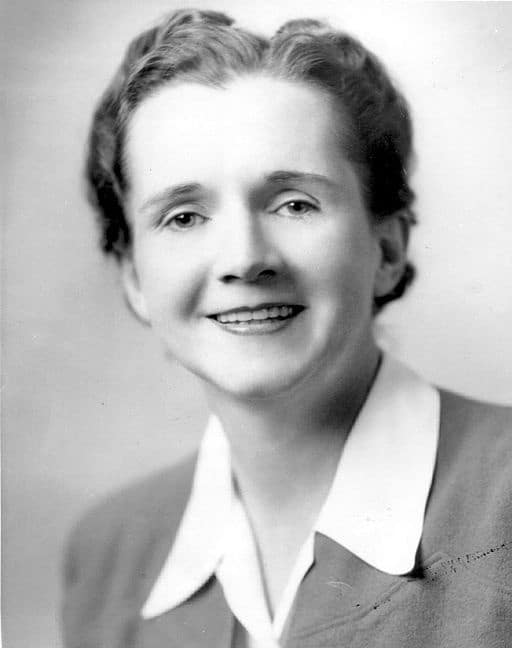As we continue to recognize the amazing accomplishments of women during Women’s History Month we cannot forget Rachel Carson who was a marine biologist, nature writer, and conservationist who is often referred to as the first woman environmentalist. Her seminal work, Silent Spring, is considered a landmark in the modern environmental movement and is credited with inspiring the ban on the pesticide DDT in the United States.
Carson was born on May 27, 1907, in Springdale, Pennsylvania. She grew up in a rural area and developed an early love for nature. She studied biology at the Pennsylvania College for Women (now Chatham University) and later earned a master’s degree in zoology from Johns Hopkins University.
Carson began her career as a writer for the U.S. Bureau of Fisheries in 1936. Her job was to write radio scripts promoting the agency’s work, but she soon began writing articles and books about marine biology and conservation. Her first book, Under the Sea-Wind, was published in 1941 and was well-received by both critics and the public.
Carson continued to write about nature and conservation throughout the 1940s and 1950s. Her books The Sea Around Us (1951) and The Edge of the Sea (1955) were bestsellers and established her as one of the most important nature writers of her time.
However, it was her 1962 book Silent Spring that cemented Carson’s place in environmental history. The book documented the negative effects of pesticides on the environment and human health, and argued for more careful and thoughtful use of these chemicals. The book was controversial at the time, as it challenged the prevailing belief that pesticides were completely safe and necessary for agriculture.
Silent Spring became a bestseller and was widely read by the public and policymakers. It sparked a national debate about the use of pesticides and eventually led to the ban on DDT in the United States in 1972. Carson was awarded the Presidential Medal of Freedom posthumously in 1980 for her work on environmental issues.
Carson’s legacy continues to inspire environmentalists around the world. She demonstrated that one person can make a significant difference in the fight to protect the environment, and she emphasized the importance of scientific research and careful consideration when it comes to issues of public health and safety.
In addition to her contributions to environmentalism, Carson is also remembered as a trailblazer for women in science and writing. She was a pioneer in her field and paved the way for other women to pursue careers in science and conservation.
Rachel Carson’s impact on the modern environmental movement cannot be overstated. Her work as a writer and conservationist helped to raise awareness about the negative effects of pesticides on the environment and human health. She remains an inspiration to people around the world who are fighting to protect the planet and its natural resources.

